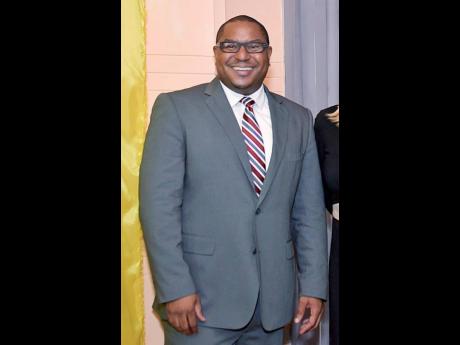RUSH HOUR
Parliament sits at breakneck speed to fix fine foul-up, but collision inevitable, says lawyer
Steps by the Government to pass legislation to indemnify the State for imposing and collecting excessive traffic fines since 2006 were a flawed approach to resolve the issue and will not stand up to legal scrutiny, says attorney-at-law Gavin Goffe.
Stung by a lawsuit that if successful, could see the authorities paying out billions of dollars, the Government has called a sitting of the Lower House today to debate a bill that is seeking to validate state actors who carried out duties that apparently did not have the backing of the law.
Further, an injunction granted by a Supreme Court judge on Wednesday blocking the police from issuing traffic tickets in excess of fines up to 2006 rates could put a massive dent in the Government’s projected collection of $225 million in road traffic fines this fiscal year.
In an unusual departure from both tradition and the Standing Orders, the House of Representatives will today sit to debate The Road Traffic (Amendment, Validation and Indemnity) Act, 2021.
The parliamentary agenda was tweaked Thursday afternoon to accommodate today’s debate on the bill, which will be taken through all its stages.
The Standing Orders designates Tuesdays, Wednesdays, and Thursdays for the Lower House to sit but also makes allowance for the suspension of the rules to allow the House to meet on other days.
Lawmakers have rushed to Parliament to correct a seeming legislative error following the granting of an injunction by Supreme Court Judge Sonia Bertram Linton.
The judge issued the interim order until the trial, in 2023, of the claim brought by Maurice Housen against the attorney general and the commissioner of police.
The case has also become a class-action suit after the judge permitted Housen, who is a software engineer, to be the representative of other drivers and motor vehicle owners who were issued traffic tickets and paid a fine or a fixed penalty in excess of the measures approved up to 2006.
Goffe, one of the attorneys representing Housen, told The Gleaner Thursday that the approach by the Government in trying to indemnify the State for excessive fines since 2006 would not work.
“The difference between this error that they have made and the errors that have been made in other circumstances is that in this case, you are involving criminal sanction, whereas in the other cases, there was indemnification for duties, licence fees, and taxes,” Goffe said.
“Whereas there isn’t the same level of protection from retroactive taxation, the highest law of the land, our Constitution, absolutely protects against retroactive imposition of criminal penalties,” he argued.
The attorney said that what lawmakers should have done 15 years ago was to amend the Road Traffic Act.
“I think it is a clear indication that they don’t have a defence to the claim in court,” he said.
Goffe divulged that he and his client had anticipated that the Government would move to indemnify state actors who imposed the higher fines that did not have the force of law. However, he contended that it was “unfortunate that we can’t get things right the first time”.
He described the Provisional Collection of Tax Act as a shortcut to avoid having to amend the laws in the way that it should properly be done.
“They have known for many years that this is not the right way to do things, and that’s why they will be going through now and trying to indemnify themselves to correct it,” he said.
Citing that he expected bipartisan support for the bill today, Goffe said that both political administrations have been guilty of passing shoddy laws and have had to take measures to Parliament to provide indemnification and validation for state personnel.
Permanent Secretary in the Ministry of National Security, Courtney Williams, said that the ministry would have to study the implications of the court injunction and move quickly to cauterise the losses that might flow from it.
“In terms of having the appropriate legislative framework in place, it would mean that we would most likely go back to Parliament to ensure that we have the correct legislation that will ensure that we can continue to collect the traffic ticket fines based on the intended fines that we want,” Williams said.
“It’s a case of moving with alacrity to ensure that we can get to Parliament and undertake the necessary amendments or introduction of the regulations, but as we speak, those conversations are taking place right now.”

